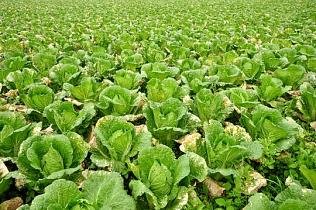Organic doesn't Mean pesticide-free
(NC) Every year, popular fruits like strawberries and apples land near the top of the so-called “dirty dozen†list. Those are fruits and vegetables an American environmental group claims consumers should avoid because they contain high pesticide residue levels. The group also says eating organic produce is the safer choice.
But does organic really mean “pesticide-free?â€
No. It's a little-known fact that organic farmers are allowed to use natural pesticide products, as well as even some synthetic or man-made ones, on their crops. Although some specific chemicals are not approved for use in organic production — such as organophosphates, glyphosate, atrazine and methyl bromide — many others are.
In fact, the United States Department of Agriculture Organic Act permits the use of a long list of products. However, natural doesn't necessarily mean safer. The USDA list includes copper sulfate, borax and borates, for example, which have known impacts on humans.
Meanwhile, a University of Guelph study found that the environmental impact of organic pesticides can be higher than synthetic ones because farmers need to use higher doses in order for them to be effective.
So, what about the “dirty dozen?†Yes, fruits and vegetables can contain some pesticide residues, but only at amounts deemed not to cause harm. Those amounts are so minute that a child could eat 1,508 servings of strawberries in a single day without any effect — even if those berries had the highest pesticide residue recorded for strawberries by the USDA.
In fact, there's no such thing as “zero†when it comes to hunting for residues. Lab equipment and testing methods are now so sophisticated that they can detect parts per billion or even trillion, whereas previously only parts per million were detectable. This means that amounts so tiny they won't cause harm will still show up in tests.
Residues in food are regulated to remain 100 to 1,000 times below the no effect level. This means consuming more fruits and vegetables is far more beneficial for reducing the risk of cancer, heart disease, diabetes and obesity than trying to avoid them over concerns about residues.
www.newscanada.com
Comments
There are 0 comments on this post





